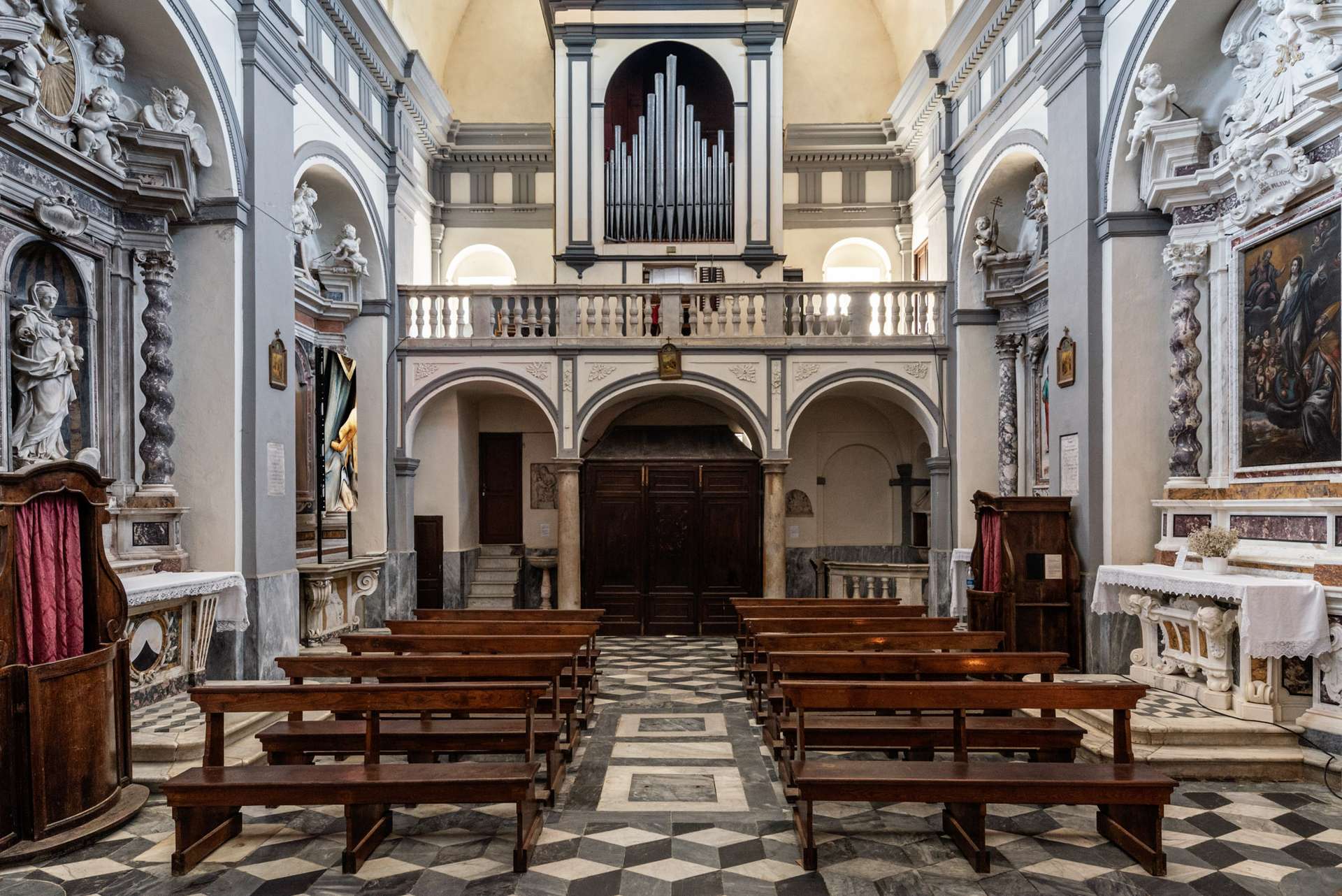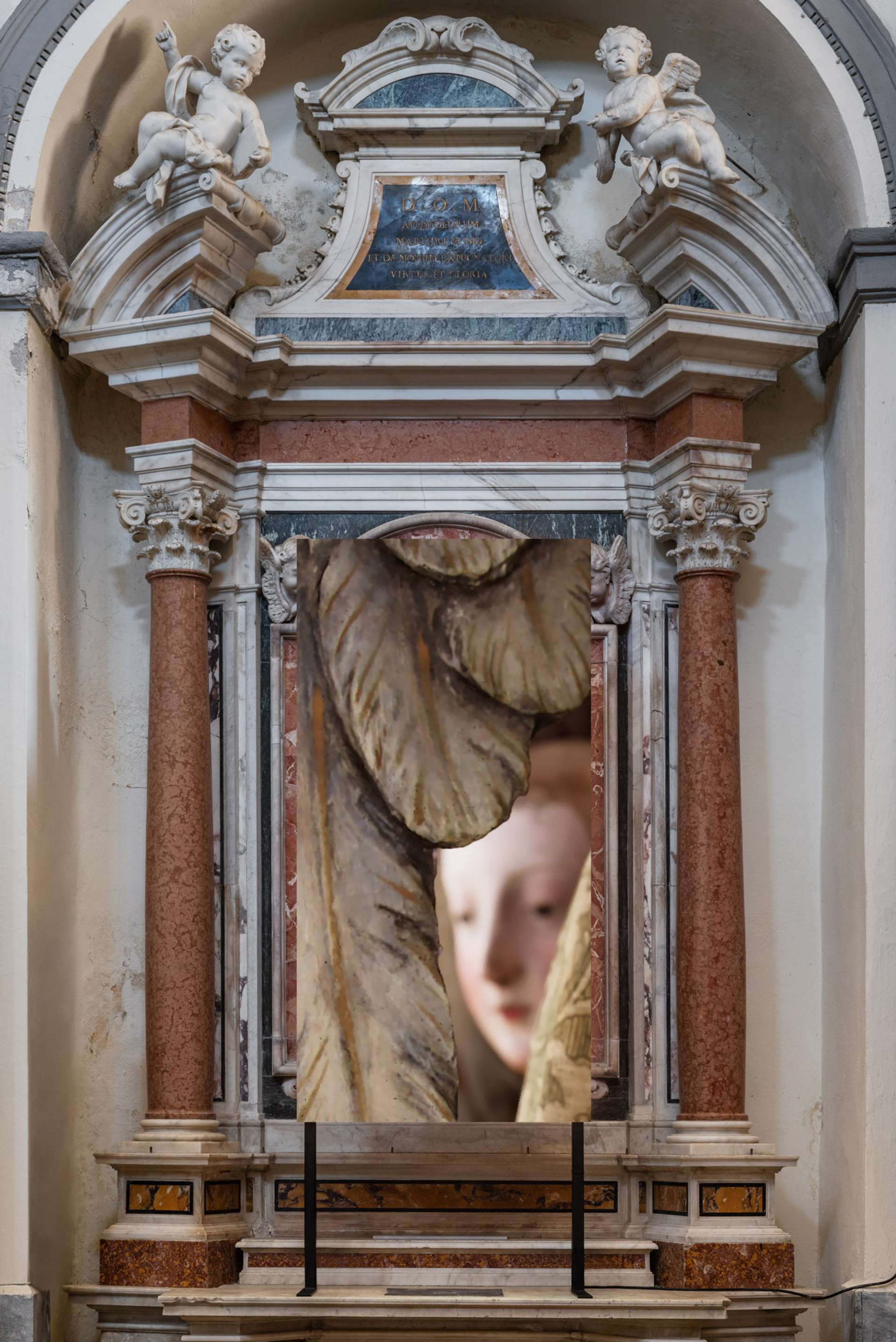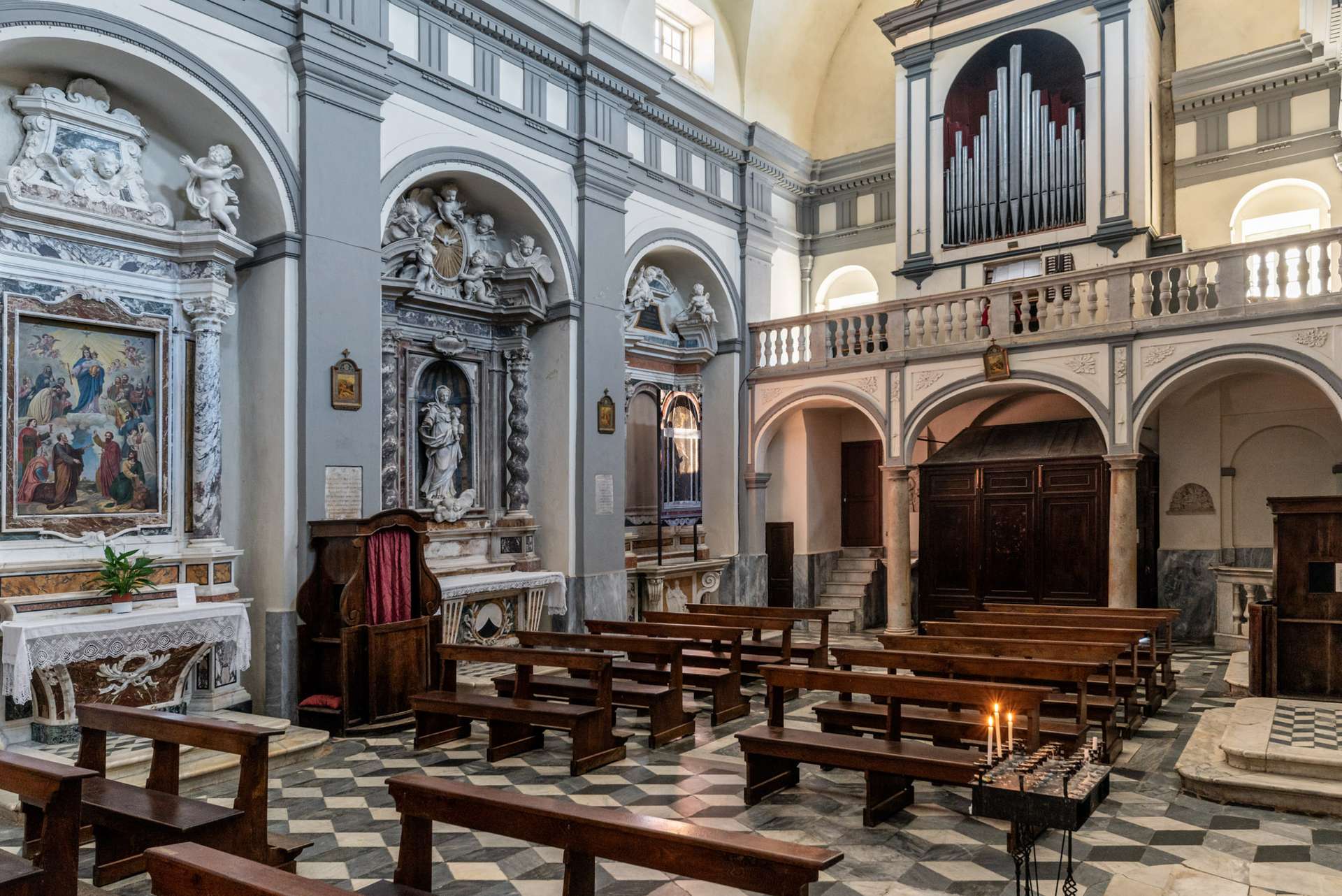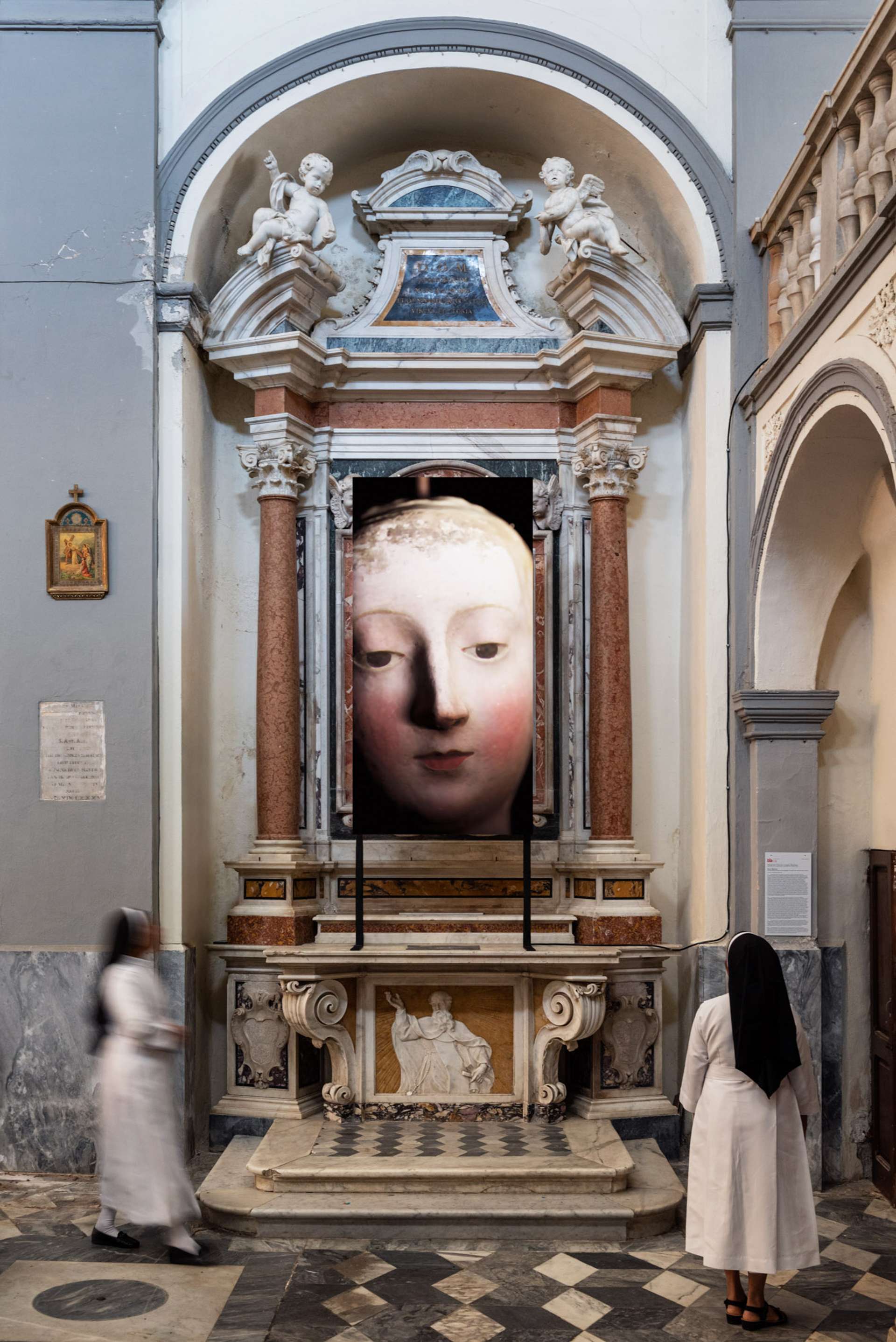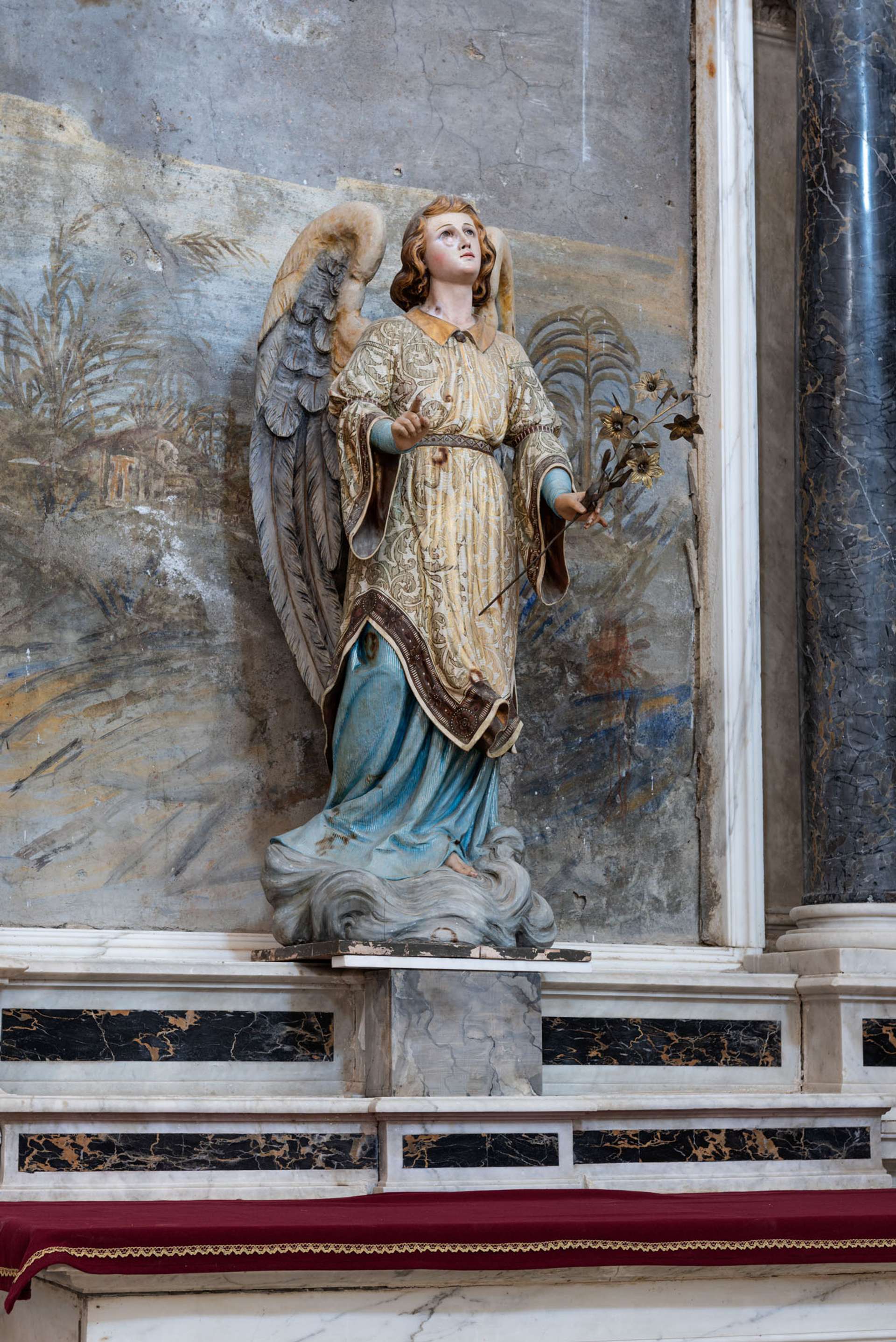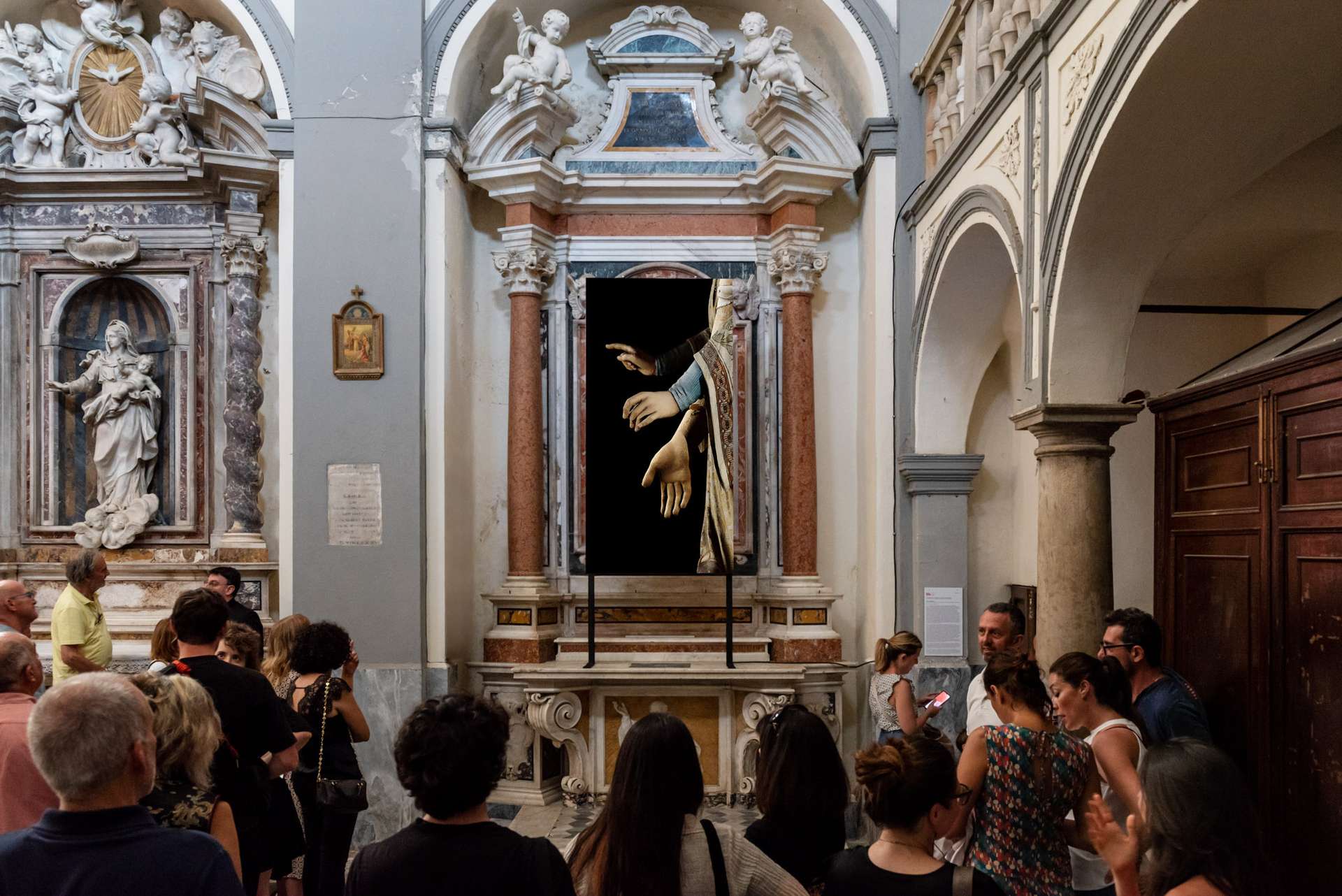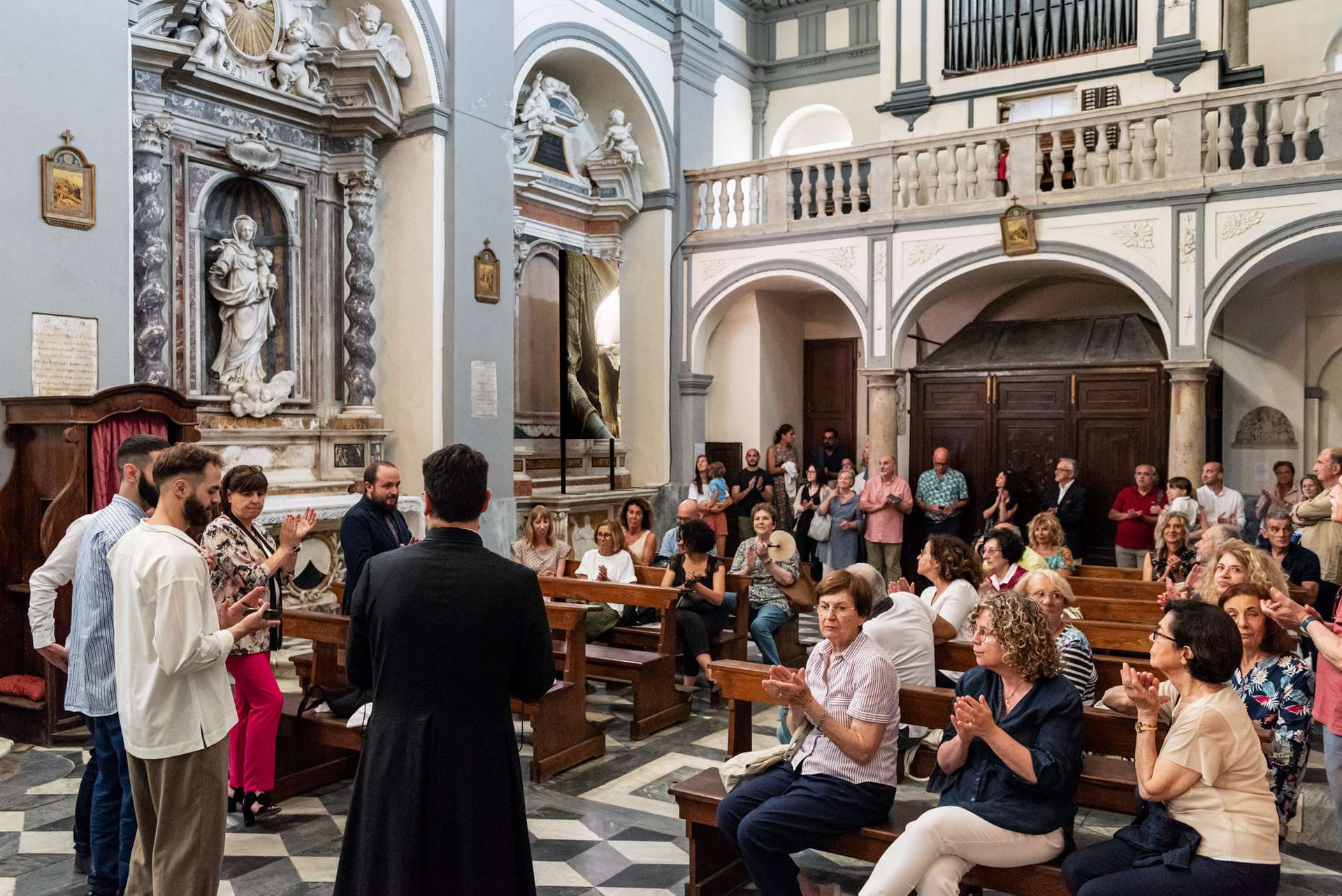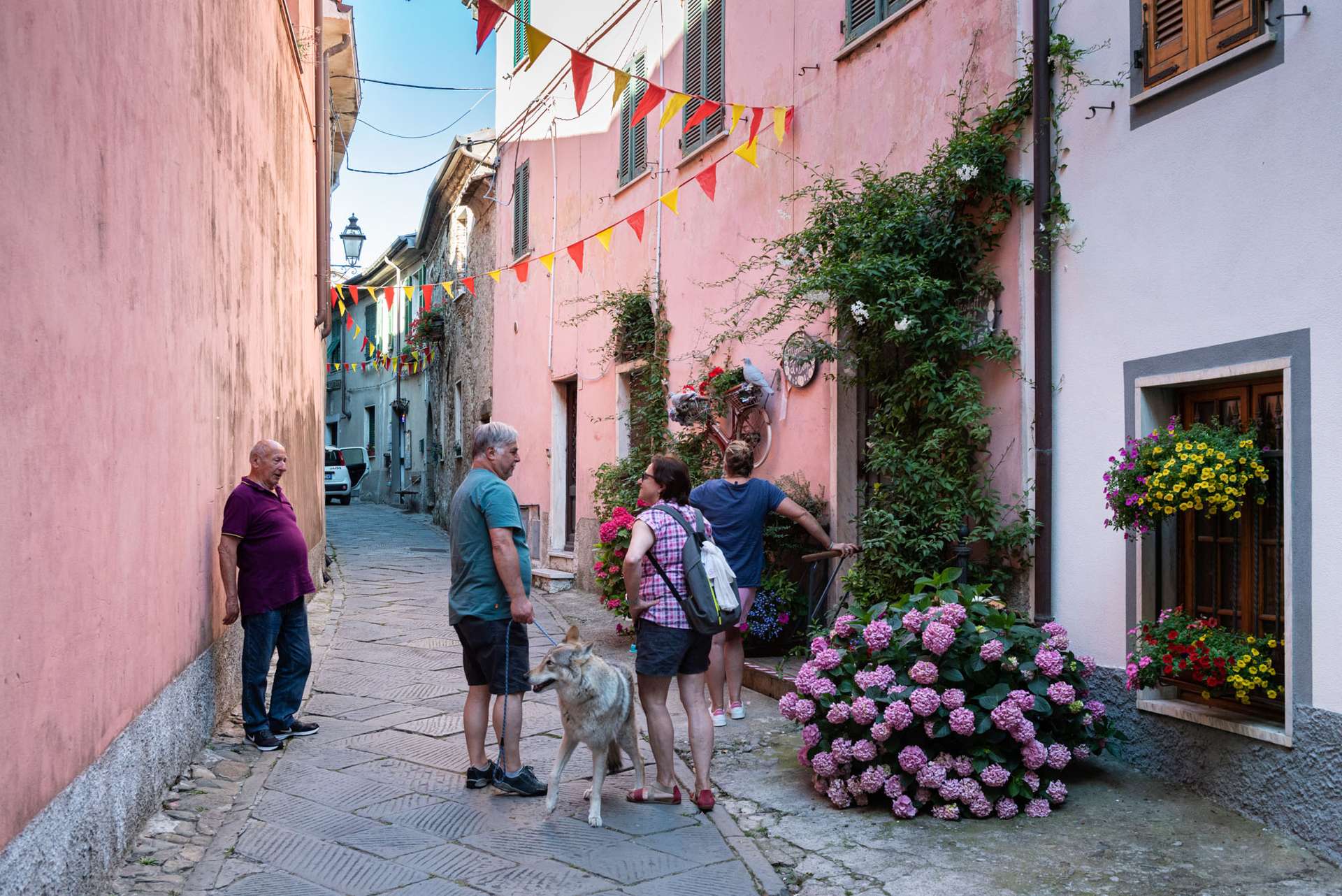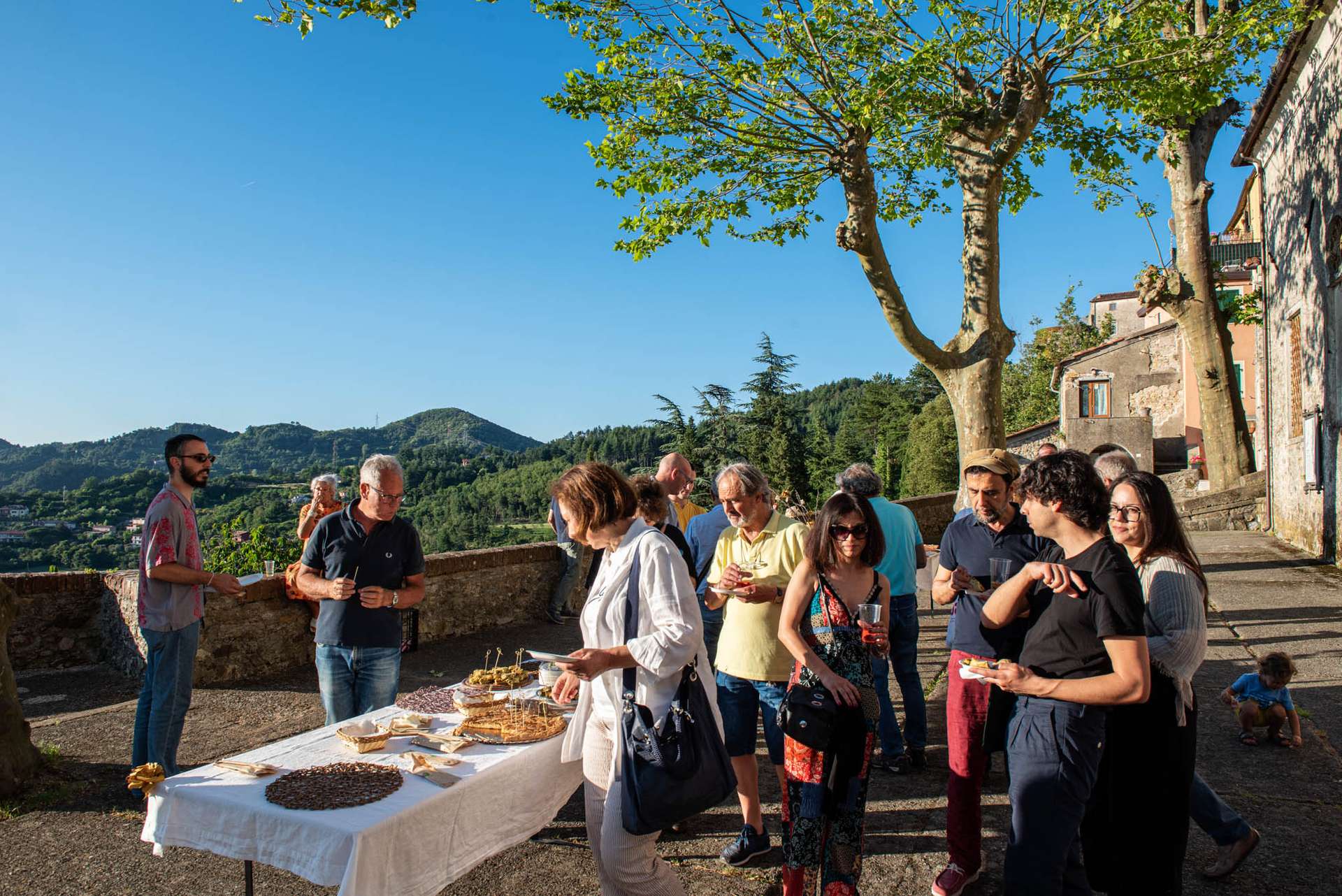In 1628, the statue of an Announcing Angel, companion to the famous Madonna Annunziata of Oratorio dei Bianchi, mysteriously disappeared from Fosdinovo. A few years later, in 1676, an image dedicated to the Virgin emerged: Our Lady of the Rosary, from the Church of San Remigio.
According to oral tradition, there is an unusual theory according to which the statue of the Immacolata could be the angel, not lost but transformed into the Virgin to meet new devotional needs. Numerous visual clues, also explored by recent studies conducted by the University of Pisa, provide support for this evocative hypothesis.
The video installation Rosa Mystica, made using digital scanning and animation techniques, represents this version of events by staging an eternal mutation between the sculptural bodies of the Virgin of San Remigio and an Angel that took the place of the lost statue in the 20th century.
Placed on an altar in the same church where the original statue is kept, the work explores the potential of new technology as a response to the need to relate to images in order to perceive the transcendental dimension.
For centuries, the community of Fosdinovo has cultivated a mystical sense of belonging through practices such as enrobing statues, enacting processions and participating in confraternities. Over time, such traditions have attracted the attention of power. For example, according to historical documents, Cristina Pallavicini, wife of Marquis Ippolito Malaspina, was particularly devoted to Our Lady of the Rosary. In 1692, she donated a valuable “white silver robe decorated with fine gold and silver lace.”
More than three centuries later, Rosa Mystica gives the statues a new digital robe. The gift, which in this case does not imply the exclusivity of material wealth, is intended to convey an ancient sentiment to the community of tomorrow, increasing awareness of sacred space and redefining the virtual dimension as a realm akin to the spiritual domain.
ㅤ
ㅤ
Exhibited works:
Theodoulos Polyviou e Loukis Menealou, Rosa Mystica, 2023. Site-specific video installation, digital animation, 100 x 200cm.
Church of San Remigio, via Roma 2, Fosdinovo
"ROSA MYSTICA", TRACES BACK TO THE MUTATION HYPOTHESIS OF THE WOODEN STATUE OF THE ANNOUNCING ANGEL TO MADONNA ROSARY. BY ADORNING THEM IN DIGITAL ATTIRE, OUR AIM WAS TO HONOR KNOWLEDGE SYSTEMS INTEGRAL TO FOSDINOVO’S COMMUNITY AND REFRAME THE VIRTUAL AS A SPIRITUAL REALM
Theodoulos Polyviou (Nicosia, Cyprus, 1989) lives and works in Berlin. In 2014 he graduated in Visual Communication from the Royal College of Art, London. He co-founded the project space Koraï, Cyprus, which he directed for several years and co-curated Mediterranea 19 Young Artists Biennale in 2020. School of Waters, San Marino. He has presented his work in solo exhibitions, including those at Kunstlerhaus Bethanien in Berlin and ZKM: Center for Art and Media in Karlsruhe; he has participated in numerous group exhibitions including the Cyprus Pavilion at the Venice Architecture Biennale in 2021. He was recently artist-in-residence at KORA - Contemporary Arts Centre in Castrignano de' Greci, where he developed a project in collaboration with Alfatih. In November 2023, his solo exhibition Trasmundane Economies; Zypern Iconostasis is scheduled to take place at the Bode Museum in Berlin. For Una Boccata d'Arte 2023, Polyviou collaborates with Loukis Menelaou (Cyprus, 1997), an architectural designer living in London where he is in his final year of Architectural Studies at the Barlett School of Architecture, UCL.
THE VIDEO INSTALLATION CREATED USING DIGITAL SCANNING AND ANIMATION TECHNIQUES, EXPLORES THE POTENTIAL OF NEW TECHNOLOGIES TO SATISFY THE DESIRE TO RELATE TO IMAGES IN ORDER TO PERCEIVE THE TRANSCENDENT
Fosdinovo is a village of about 4,500 inhabitants, set on a ridge in a beautiful position overlooking the Val di Magra valley, and dominated by the Malaspina castle around which the village developed. Dating back to the 12th century, it was the family's residence and political centre, and tradition has it that Dante Alighieri was also hosted in its rooms. Today it is open to the public and the ducal halls and parts of the medieval keep can be visited. In early July, the village presents an evocative medieval atmosphere created by the traditional historical re-enactment. The village's unique position, set between the sea and the Apennine and Apuan hinterland, gives it a varied climate that is ideal for both coastal and mountain crops. Famous specialities include Vermentino wine, extra-virgin olive oil, Lunigiana D.O.P. (P.D.O, protected designation of origin) honey, and the Pomo Rodelo, a native apple variety. Fosdinovo is surrounded by nature, and its territory offers a wealth of hiking trails such as the Sentiero dei Ducati (Trail of the Duchies) and a portion of the Via Francigena (an ancient pilgrimage route) where the 15th-century sepulchral monument of Galeotto Malaspina is located. The French cult of San Remigio, to whom the parish church is dedicated, expanded along this famous Way.
